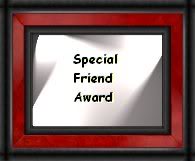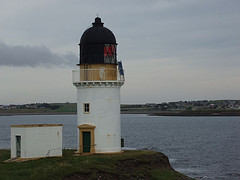Petar (pvodogaz) has written an extensive comment to my Monday notes post, earlier today. He specifically commented on the decision by the Australian PM-elect, Kevin Rudd, to apologise to the aboriginal people of Australia, for the way they have been treated in the past. Petar raises an interesting slant on this, in that individuals may not feel it incumbent on themselves to be part of this apology.
I would like to discuss it further by placing it in a broader historical perspective, but in doing so am liable to cause offense. I want to state in advance that none is intended.
There are several historical parallels to be drawn in the case of the Aboriginals.
First of all, the Native Indian people of America. The Spanish Conquistadores slaughtered and brutalised them under the pretext of a religious imperative. European settlers fought them, and treated them equally like savages. Having subjugated them by the end of the 19th century, the Indians were stuffed into reservations and treated like the last-rate citizens. Their land was taken from them, their culture destroyed. I have yet to hear an apology from the US administration, although it was in fact genocide on a stupendous scale. It happened a long time ago, and nobody alive today was involved in that. Still, the United States carries a communal guilt in this field, which they are not prepared to confront.
Many of the conflicts in the world today are born of colonial rule by European powers, Great Britain, France and Portugal being the prime suspects. The legacy of British rule in particular can safely be described as catastrophic. I am talking about Pakistan and India, at perennial loggerheads for 60 years, nuclear powers in opposition to each other. I am talking about the Middle East, a colossal mess far, far worse than India, which was left in total disarray after the British pulled out at the end of the first half of the 20th century. I'm not expecting an apology soon from the governments in London, Paris or Lisbon.
World War II left two nations with a gruesome legacy to come to terms with. Germany, which has the death of tens of millions on its conscience, as well as Japan. The barbarity of both regimes is well documented. There have been a few expressions of regret from the government in Bonn, latterly Berlin. Very little has been forthcoming from the Japanese, who were not so utterly vanquished as the Germans were. Emperor Hirohito was relieved of his status as deity, but never faced a war crimes tribunal, unlike leading surviving figures in the Nazi regime in Germany.
Saying sorry for past misdeeds does not undo the past. Apologising is about recognising by present generations that a wrong has been done by the nation in the past. I appreciate that legal repercussions may ensue of an apology in the case of the Aboriginals.
I headed my post Communal guilt, as that what this is about. This is not about individuals, this is about a nation. In my personal opinion, it would show Australia as a matured nation, that is prepared to stand up for its actions.
Monday, 26 November 2007
Subscribe to:
Post Comments (Atom)












Many of us, individually, are prepared to confront. There are at least many laws and such out there to recognize the financial aspects for native Americans. Many think that Thanksgiving is a secular, all-USA holiday. Ah, not for ALL!
ReplyDeleteHaving been to Austrailia several times i was shocked at the way the Aboriginal people were treated and my last visit was in 2000. Also the Australian people not only tried to farm them out to white families in doing this they tried unsuccessfully to breed them out, and I think they should apologise for that afterall it is their Country.
ReplyDeleteI totally agree,to be honest it is a possibility that an apology is a mere political slant to gain popularity,as it is Kevin Rudd was not alive when these atrocities occurred,however we are all responsible,if you take the teachings of history within schools,the books written can often not be as truthful as we would hope,after all teaching history to our children is so that we can learn from the past.Yet people in power in the past are often referred to as 'great leaders',but in fact were far from it.Hitler being a prime example,the scapegoat of the war,however let us not forget,his people did revere him before the even worse atrocities of the SS,so apologising for the slaughter of so many holds no water,if he was loved as a leader before genocide was associated with his reign,when it then became unacceptable to agree with his beliefs,then the history books should account this and not portray german nationals as the 'victims' of the ones in power.We ourselves here have followed our monarchs into senseless wars,with only enough information as to why,to encourage us to kill the enemy.Most of the time we outnumbered our enemies and in alot of cases,attacked peoples who could not defend themselves.However history shows us as great conquerors,but those of us who war,are no more than playground bullies.
ReplyDeleteZoe xx
I fully agree....June
ReplyDelete